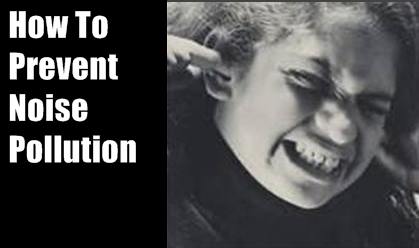“Every man is surrounded by a neighbourhood of voluntary spies” – Jane Austen
It is impossible to run any business without generating some noise, the music and chatter of a busy pub can be a bone of contention with your neighbours, even though we all live our lives with noise constantly in the background.
Most of the time the noise emanating from a pub’s nothing to worry about, but noise complaints tend to peak during the spring and summer when pub customers start using outside areas, windows are opened in the pub and neighbours start to enjoy their gardens and leave their windows open.
The level of “noise tolerance” is different for everyone, however, when the length of exposure to certain noise levels is exceeded or when one-off noises (peaks) are particularly loud – it can cause health and other problems to employees, customers and neighbours.
In these circumstances you are legally required to assess the risks of noise and take steps to control noise above fixed action levels. Since 6 April 2008, lower noise action levels in the workplace applied to businesses in the music and entertainment sectors – this means you!
This guide will help to explain the types of noise common in your pub, when it is likely to be of concern and what you have to do about it.
Causes and Types of Noise
Noise pollution can be split into two categories: internal and external.
Internal noise can present a health hazard in many business activities. Sources of workplace noise might include loud music in the bar, a disco in your function room or even a particularly noisy kitchen.
External or environmental noise, which emanates from your pub or is caused by your activities or those of your customers outside, your premises can impact on the public.
Environmental noise may be regulated by the Environment Agency under the environmental permitting regime or by local authorities under statutory nuisance legislation.
Under current legislation, members of the public may make a complaint against your business.
When is noise considered to be hazardous?
As a rule of thumb, you may have a noise problem if you have to shout to be heard by someone two metres away and/or people’s ears ring after leaving your premises.
Continuous noises can present a hazard, for example constant loud music in the bar, but noise can also be a hazard when it’s sporadic for instance the noise of a boisterous set of football fans during a match you are screening.
The degree to which a noise presents a hazard depends on both its level and how long people are exposed to it. When assessing whether noise presents a health hazard consider its impact on:
- you
- your employees
- your customers
You should also consider whether your business generates noise that could impact on members of the public living nearby.
You can download advice for employers on noise at work, from the HSE website.
Your legal duties on noise
It makes good business sense to reduce noise-related problems such as ringing in the ears, hearing damage and the stress noise can create. You have a general duty of care towards people who work for you and there are specific noise-related regulations you must comply with.
